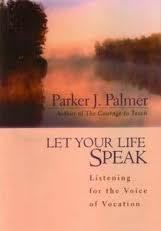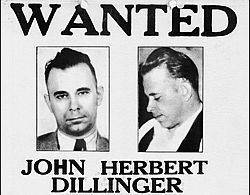 My preparation for speaking this week led me down an old path. Not surprisingly, that path had a book clearly lodged in it, flashing like a DETOUR sign alongside the expressway. It is one of those “small” books (barely over 100 pages) that had a “super-sized” influence on my life.
My preparation for speaking this week led me down an old path. Not surprisingly, that path had a book clearly lodged in it, flashing like a DETOUR sign alongside the expressway. It is one of those “small” books (barely over 100 pages) that had a “super-sized” influence on my life.
The author is Parker J. Palmer and the title of the book is Let Your Life Speak: Listening for the Voice of Vocation. Hardly a page into the first chapter, the author pulls a line from a poem by William Stafford called “Ask Me” and stops me “alive” in my tracks: “Ask me whether what I have done is my life.” More than a poetic line of wonderment, it is a disquieting declaration of everyone who reflects seriously about whether the life we are living is the same as the life that wants to live in us. Palmer concludes, “Before I can tell my life what I want to do with it, I must listen to my life telling me who I am.”
Every time I stand to speak, I am reminded of the absolute necessity of listening. Listening to God, to myself and to “certain” others, is the platform for my speaking. As I listened to Palmer again this week, I was struck by what he calls the five “shadows” in leaders’ lives. These deep, unconscious beliefs cause harm to the leader as well as others. The shadows can be stated like this:
1. I am what I do.
2. This is a war—I must fight and win.
3. It all depends on me.
4. If we manage everything perfectly, we won’t have to deal with chaos and pain.
5. Nothing can fail or die on my watch.
Ask yourself honestly, which of these shadows, if any, have you lived and believed? Take the third one. When was the last time you blurted out unsolicited advice to someone? Maybe it was the person who works with you or the driver who is in front of you or maybe even one of the people you live with called your family. There are two problems with this. It is not helpful to others (who needs unasked-for advice?) and it is not healthy to the person doing it (we have enough of our own stress). So, what can we do about this “it all depends on me” shadow?
Since you asked (I would NEVER give unsolicited advice!), let me say it succinctly: We slow down “enough” to listen.
• We listen to God (how about a prayer that meditates on scripture and then just listens for God to speak?).
• We listen to ourselves (how about writing down our thoughts, feelings and frustrations and letting our lives speak to us?).
• We listen to “certain” others (how about talking deeply and regularly with a trusted group of friends?).
At the end of the first chapter, Palmer concludes, “The soul speaks its truth only under quiet, inviting, and trustworthy conditions. The soul is like a wild animal—tough, resilient, savvy, self-sufficient, and yet exceedingly shy. If we want to see a wild animal, the last thing we should do is go crashing through the woods, shouting for the creature to come out. But if we are willing to walk quietly into the woods and sit silently for an hour or two at the base of a tree (or in a comfy chair for those indoor folks like me), the creature we are waiting for may well emerge, and out of the corner of an eye we will catch a glimpse of the precious wildness we seek.”
So, hurry up and slow down and listen!
